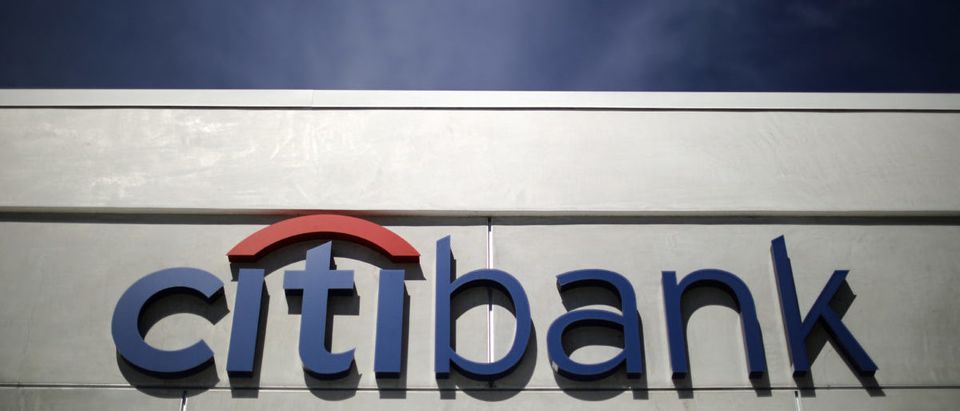Citigroup’s getting asked some hard questions about fiscal sanity of their decision to discriminate against firearms businesses and their answers aren’t likely to soothe investors.
Justin Danhof, General Counsel for the National Center Public Policy Research and Free Enterprise Project posed a simple question. “Can you tell us – your investors – exactly how much money we stand to lose because of this decision, and explain why you have this right while Warren Buffet has this wrong?”
Danhof was referencing Buffett’s 2018 refusal to impose his own political views on investors. The “Oracle of Omaha,” who runs Berkshire Hathaway, rebuffed antagonist Andrew Ross Sorkin when he read a shareholder question during a CNBC interview about doing business with gun manufacturers.
“I don’t believe in imposing my political opinions on the activities of our businesses,” he said. It was the second time he stated his position. Earlier in 2018, he stated it just as clearly. “I don’t believe in imposing my views on 370,000 employees and a million shareholders. I’m not their nanny on that.”
Invest In Business, Not Politics
It’s telling that one of America’s most successful investors sees injecting corporate virtue signaling into investment and banking issues as losing proposition. It’s not that Warren Buffett is a gun rights champion. He’s a board member of billionaire Michael Bloomberg’s Everytown for Gun Safety which champions extreme gun control and supported Hillary Clinton for president when she campaigned on a platform of reinstating and expanding the Assault Weapons Ban of 1994.
Buffett sees it as bad business for unaccountable corporate C-Suites to dictate public policy.
Citi’s CEO Michael Corbat tried to field Danhof’s question but stumbled out of the gate. Instead of owning up to a purely political decision, he offered half-truths. Corbat said Citigroup’s policy to discriminate against firearms manufacturers and retailers who refuse to abide by their policy of instituting age-based gun bans – deny a right to keep and bear arms by a legal adult – wasn’t a Second Amendment threat, rather a “good practice.”
Corbat tried to couch it that they would only do business with retailers who conduct full background checks and no financing for companies who use loans to convert legal firearms into illegal firearms.
If it sounds confusing, it’s because Corbat purposefully was aiming to do so.
All federally licensed firearms retailers are required by federal law to conduct an FBI background check at the point-of-sale before they can transfer a firearm to a consumer. This is done each and every time. This is not a “best practice,” it’s the law which the industry supports. Also, no firearms manufacturers use any money – lent, invested or earned – to convert legal firearms into illegal ones. It’s a quick way lose a manufacturing license and head to prison.
Purposefully Misleading
Corbat is purposefully conflating the actions of individual criminals with that of an entire law-abiding industry that serves to provide the means for Americans to exercise their Second Amendment rights. Citigroup’s actions, and Corbat’s answers, are a threat. Real solutions to the criminal misuse of guns looks a whole lot more like campaigns to make background checks work as intended by entering all disqualifying records, partnerships with the ATF to prevent “straw purchases” of guns and make firearms retailers less vulnerable to theft and robbery and using enhancing penalties for those who steal guns to commit further crimes in our communities.
You Broke It, We Bought It
The irony here, as Danhof pointed out to Corbat during the shareholder meeting, is Citigroup’s high-rise executives were claiming the gun policy moral high ground by using their financial might to influence public policy while it benefitted from public tax dollars – presumably including those paid by gun owners and firearms manufacturers – that ponied up the $45 billion Citigroup bailout.
“To be clear, the company is impinging on the constitutional rights of some of the very Americans who bailed Citi out after you all made a series of poor business decisions,” he told Citi officials. “Maybe you should have just said ‘thank you,’ instead.”
What’s The Bottom Line?
To the original question, how much money do investors risk losing by this politically-driven decision? Corbat wouldn’t say.
He admitted, “We’ve had people take business from us around the policy,” adding the move hasn’t “cost us a meaningful amount of money.”
But it has. The State of Louisiana barred Citigroup for competing for a $600 million road improvement project for interfering the lawful commerce-in-arms. U.S. Sen Kevin Cramer (R-N.D.) and U.S. Rep. Roger Williams (R-Texas) introduced the Freedom Financing Act (S. 821/H.R. 2019) that would prevent certain big banks from accessing taxpayer-funded insurance if they institute discriminatory policies against the firearms industry.
“Corbat’s admission that Citi has lost business due to its opposition to the Second Amendment is telling. But it’s concerning that he refused to say how much,” Danhof said in a statement. “This proves that Citi made a purely political decision.”
It’s time for banks to focus on banking and let voters weigh in on politics.
Larry Keane is Senior Vice President of Government and Public Affairs and General Counsel for the National Shooting Sports Foundation, the firearms industry trade association.


